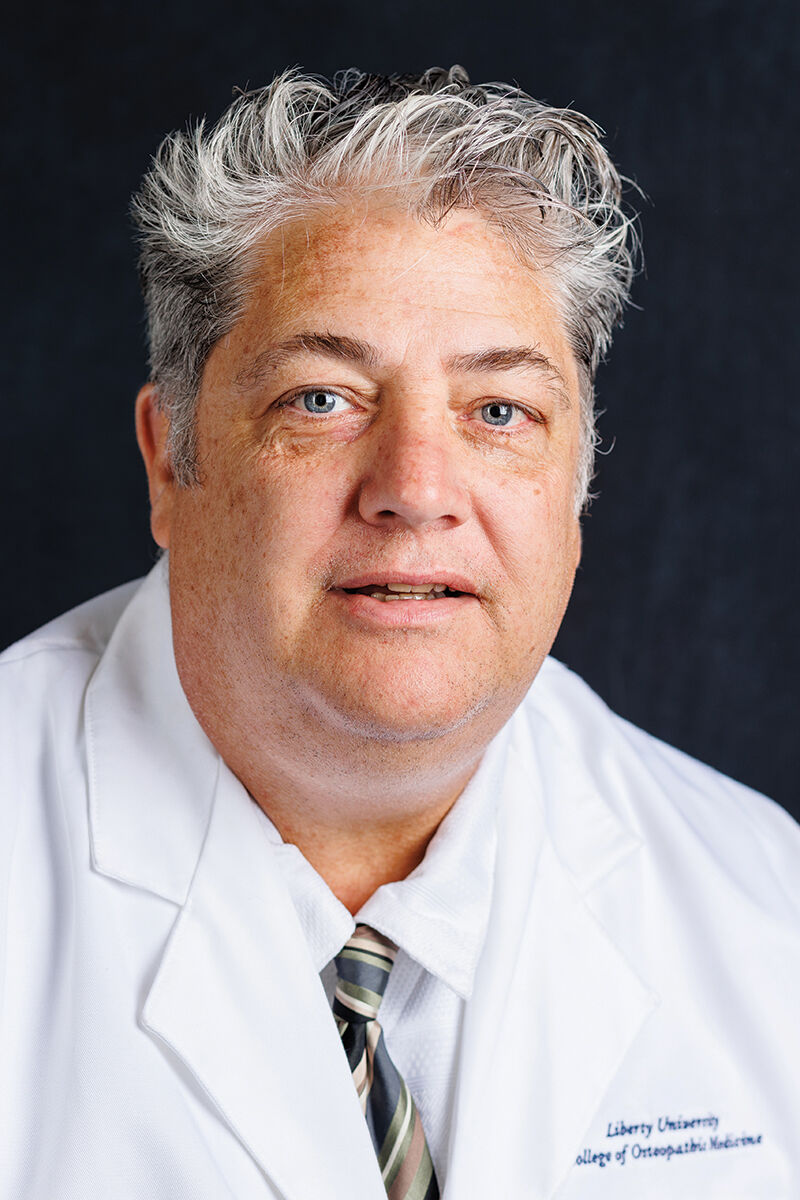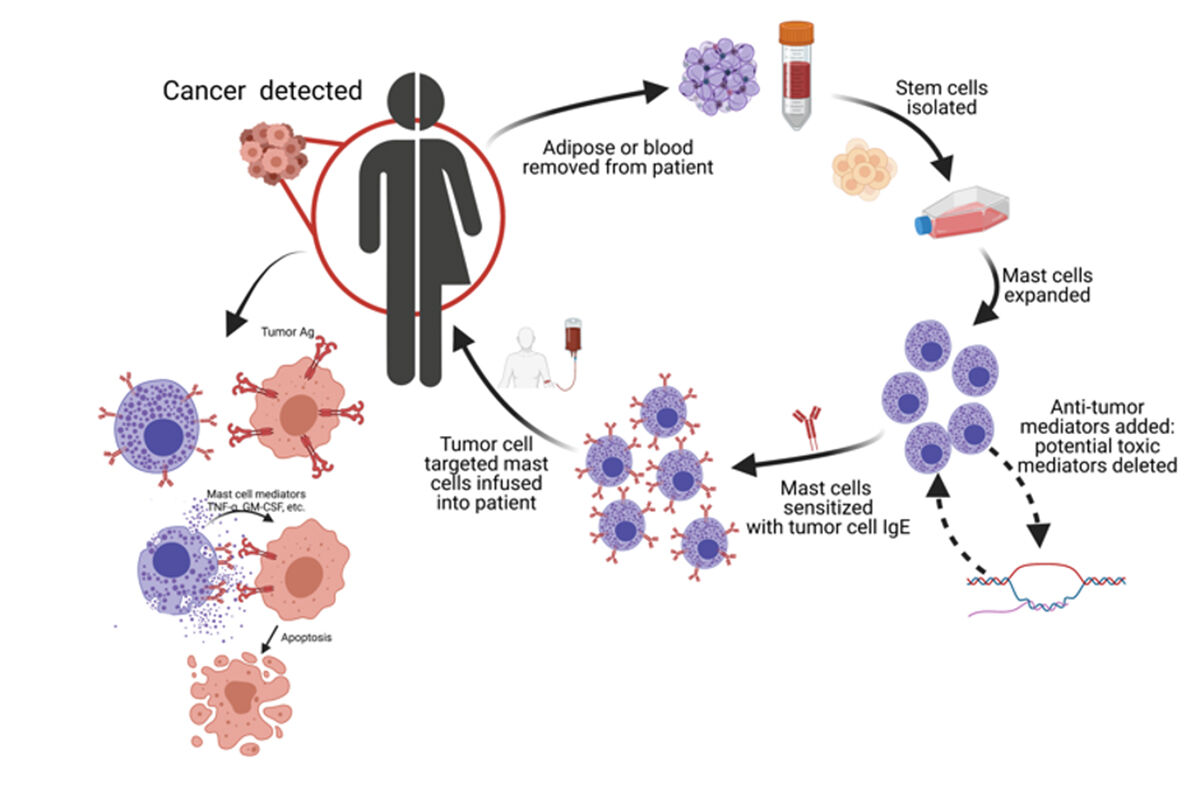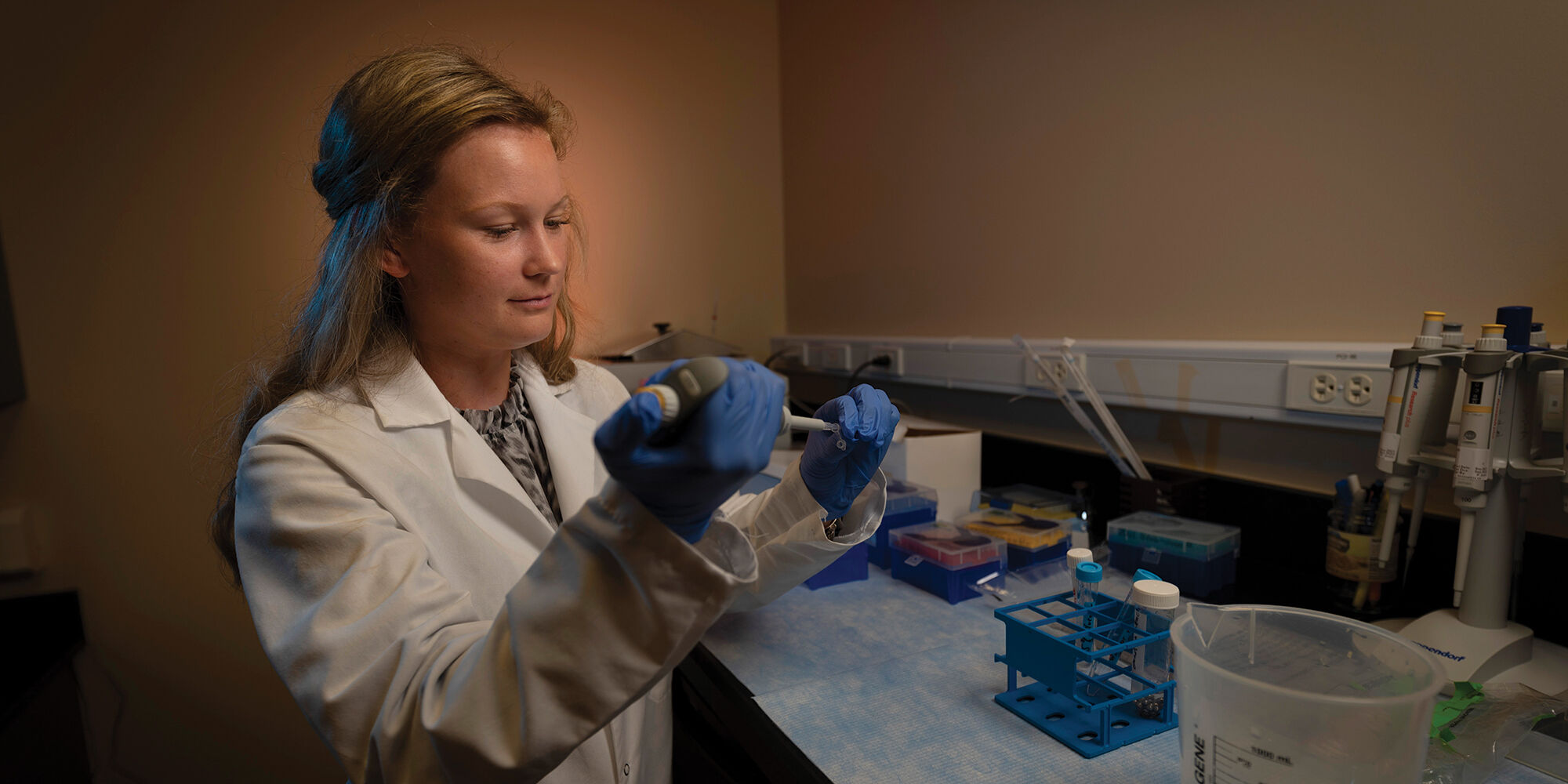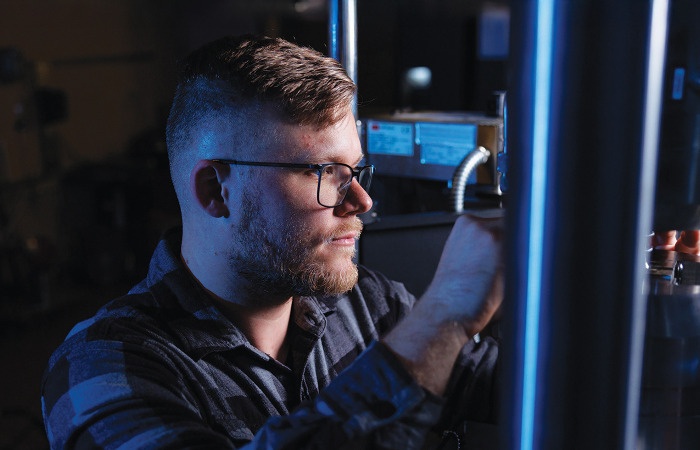Liberty University College of Osteopathic Medicine (LUCOM) faculty and student researchers have tested a new, specialized strategy for treating cancer by using the body’s immune system to destroy cancer cells.

Dr. Chris Kepley
Professor of immunology Dr. Christopher L. Kepley is leading the ongoing study, along with colleagues from the National Institutes of Health and the University of North Carolina. Their findings were recently published in “Frontiers in Oncology.” The research is being supported by a grant from the National Cancer Institute.
Through pre-clinical models, the team proposed a method of cancer immunotherapy that uses a patient’s own fat or blood cells to grow into other cells that are loaded with tumor-killing molecules. The cells are then infused in the patient, using highly specific antibodies to target cancer cells.
Kepley explained that blood cells in the immune system, known as mast cells, are found in most tissues, but doctors are unsure if they help or hurt tumor growth. However, they do recognize their unique ability to store and release potential anti-tumor mediators.
“At LUCOM, we are developing an approach to direct these anti-tumor mediators against cancer cells bearing specific molecules on their cell surface,” he said. “Using this ‘Trojan Horse’ strategy, the mast cells bind only to the cancer cells and directly release their tumor-killing molecules, leaving healthy cells intact. Importantly, the mast cells can be obtained from the patient, and the tumor-targeting IgE — a humanized monoclonal antibody — minimizes the chances of immune rejection.”
The study found that mast cells with a certain antibody, HER2/neu, were able to bind to and induce the death of tumor cells in both tissue culture and mouse models of human cancer. The team, which included second-year LUCOM medical students, demonstrated that the mast cells are safe for injection even at very high numbers.

“The strategy has several advantages over current ones,” Kepley said, “as mast cell activation is hypothesized to induce acute inflammation in the tumor microenvironment and provoke the immune system to attack the cancer cells.”
Kepley is a leading expert in human mast cell biology with over 100 peer-reviewed publications and several issued and pending patents. His research has been recognized internationally. He is a recipient of the Phadia Allergy Research Forum Award, the most prestigious international award in allergy research, and the Henning Løwenstein International Research Award for excellence in allergy research. He is the co-founder of Kepley Biosystems Inc., which provides solutions for ocean sustainability.
The study is being conducted through the LUCOM Center for Research, which supports excellence in research and scholarship in the biomedical sciences, clinical medicine, and medical education.
“At LUCOM, one of our strategic goals is to establish a reputation among osteopathic schools for excellence in biomedical/clinical research and scholarship, and as such, the Center for Research has grown tremendously since its inception,” said LUCOM Dean Dr. Joseph R. Johnson. “I am optimistic about even more expansion, and with the partnership of our new faculty, such as Dr. Christopher Kepley, and the support of the Liberty University Provost’s Office, LUCOM will continue to improve research through enhanced facilities. We seek to intentionally advance medical knowledge, improve patient care, and provide quality medical training, as well as offer mentorship and scholarly engagement as we celebrate the works of God’s hands.”




